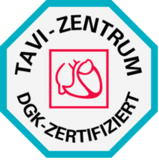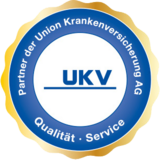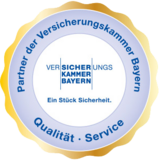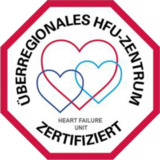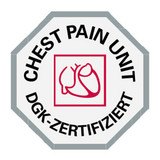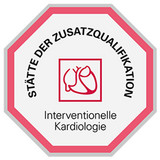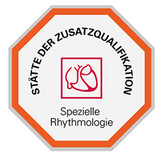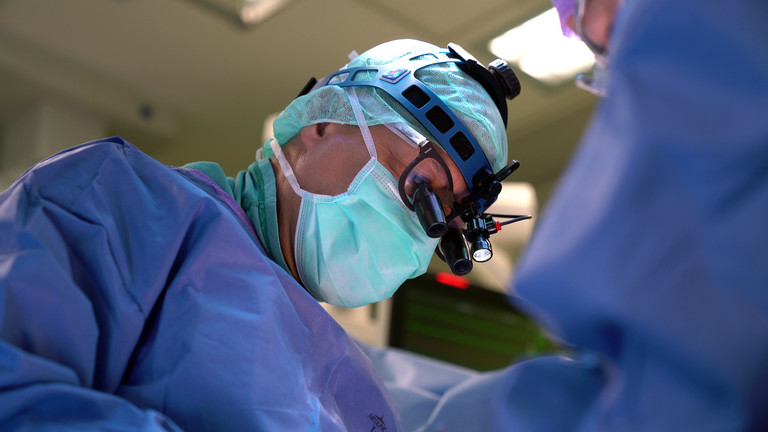
Cardiac Surgery and Department of Percutaneous Treatment of Structural Heart Disease
We offer all modern cardiac surgical techniques from coronary surgery to cardiac valve reconstruction and replacement, as well as treatment of complex aortic aneurysms and implantation of cardiac support systems.
Contact
A special focus of cardiac surgery is the treatment of coronary artery disease by means of complete arterial bypass surgery, exclusively with both breast wall arteries. The Albertinen Cardiovascular Center is rated at 95% and thus is one of the leading centers for complete arterial coronary surgery in Germany.
There is a special department for cardiac anesthesia within the Department of Cardiac Surgery. All surgeries are performed by specialists with many years of experience in cardiac anesthesia.
Our heart surgery also has a department for the percutaneous treatment of heart valve disease by means of interventional techniques. The heart team, which always consists of a cardiologist, a cardiac surgeon, and a cardiac anesthesiologist, determines the best method of treatment for each patient.
Cardiac Surgery
Cardiac Surgery is a dynamic field that has developed rapidly in recent years with the development of new surgical procedures. Complete arterial revascularization with and without the use of the heart-lung machine; mitral, tricuspid, and aortic valve reconstruction; and aortic aneurysm surgery with reconstruction of insufficiency aortic valves are now all part of the daily routine. The development of new so-called minimally invasive surgical techniques using smaller and less invasive surgical approaches which, in particular, do not require a heart-lung machine, have made cardiac surgery less stressful for the patient. Patients with serious concomitant diseases benefit particularly from avoiding the use of a heart-lung machine, as they do not experience deterioration of preexisting organ dysfunction due to side effects of the heart-lung machine.
Diseases
-
Coronary heart disease
-
Aortic aneurysm
-
Aortic valve disease
-
Mitral and tricuspid valve disease
-
Pulmonary valve disease
-
Tumors on the heart and adjacent organs
-
Pulmonary embolisms
-
Atrial fibrillation
-
Rhythm disturbances
-
Treatment of:
-
Patients with congenital or acquired coagulation disorders
-
Patients without blood transfusion
-
Surgical methods/diagnostics
-
Arterial coronary bypass surgery without heart-lung machine (off-pump) using both mammary arteries
-
Heart tumor surgery
-
Bypass operation
-
Arterial revascularization
-
Radio frequency ablation
-
Aortic valve surgery
-
Aortic valve reconstruction
-
Mitral valve surgery
-
Aortic aneurysm surgery and endoluminal stenting
-
Artificial heart/assist systems
-
Pacemaker therapy
-
CRT therapy (re-synchronization therapy)
-
ICD implantations (internal defibrillators)
Department of Percutaneous Treatment of Structural Heart Disease
Interventional transcathetic aortic valve implantation (TAVI), transfemoral, transapical, transaortic, and transjugular treatment of mitral valve insufficiency, as well as treatment with MitraClip.
Patients with heart valve disease and high operative risk are treated percutaneously (using catheter techniques). This is usually done via blood vessels in the groin area and always on the beating heart, thus avoiding the use of a heart-lung machine. The most common procedures are interventional transcathetic aortic valve implantation (TAVI) and transfemoral, transapical, transaortic, and transjugular [aortic valve implantation], as well as treatment of mitral valve insufficiency with MitraClip.
We use the most modern procedures for all these interventions, and we have a variety of different heart valve prostheses, which allows us to tailor a treatment to the individual patient.
Diseases
-
Aortic valve stenosis
-
Aortic valve insufficiency (leakage)
-
Mitral stenosis
-
Mitral regurgitation
-
Tricuspid regurgitation (in studies)
-
Leakage at valve edges (paravalvular leakage) after valve replacement
-
Shunt defects (patent foramen ovale)
-
Closure of atrial or ventricular septal defects
-
Closure of atrial appendage
Surgical methods
-
Interventional transcathetic aortic valve implantation (TAVI) (transfemoral, transapical, transaortic and transjugular aortic valve implantation)
-
MitraClip

